Picking what school you want to go to: a very important task; figuring out where you best see yourself based on location, academics, social life and finances seems tough. Once you pick your college, a whole new task comes into play: picking your major. Some go to college completely undecided and figure it out once they get there and take a few courses. Other people choose their schools based on the specific program for their major of interest. However, criminology turned into an option that may completely brush over the heads of many students. The criminology major includes a whole umbrella of careers from becoming a police officer to a criminal investigator to working in counseling. Are you interested in learning more about this unique major?
Here are the top 10 criminology schools to get you started.
1. University Of Maryland (UMD)

At the top of our list stands the University of Maryland for their successful alumni, outstanding professors, research opportunities as well as an array of course options. Within the Department of Criminology and Criminal Justice, students have the option to generally study various areas of crime, terrorism, juvenile and criminal justice, prevention, delinquency and more. UMD thrives on incorporating diversity and ethical behavior within their lesson plans in order to help students fully prepare for any job within the industry upon graduation.
“The criminology program at Maryland offers so many opportunities for students who are looking to go into the law enforcement field. With Washington D.C. being so close to campus, it opens the door for so many opportunities of interning with government officials and police officers,” University of Maryland sophomore Hannah Nissenbaum said. “I would definitely recommend the criminology program at UMD for incoming students because it gives a lot of insight into our justice system and ways we can improve it.”
UMD alumni proved that their education helped them to succeed. Some turned into award-winning researchers for their unique work within the field. Alex Piquero, one of the successful working alumni from UMD, focused his work on a huge range of criminology specifics such as the connection between immigration and crime as well as crime rates amongst NFL players. He also did some research to see crime patterns during the pandemic. He has even previously won UMD’s “Top Terp” teaching award. People have recognized his work numerous amounts of times, and he now serves as the Chair of Sociology at the University of Miami.
No surprise that graduates like Piquero turned out this successful though because UMD offers experienced professors to help guide their students. Sally Simpson, one of the professors who gained multiple notable awards for her work. Specifically, in 2013, she won the Gilbert Geis Lifetime Achievement Award from the National White-Collar Crime Center and the White-Collar Crime Research Consortium. This award honors the late Gilbert Geis, a highly respected intellectual within criminology. His work mainly focused on white-collar crime, and he even served as president of the biggest fraud prevention group in the entire world. With a 17:1 student-to-faculty ratio, professors like Simpson get to know their students one on one, which in turn, helps them grow.
2. Arizona State University (ASU)

The School of Criminology and Criminal Justice at Arizona State University stands out for its extremely notable hands-on opportunities they provide their students. This specific program, located within the ASU Downtown Phoenix campus, provides direct access to major criminal justice agencies for students to work with and learn from. With a variety of courses for students to freely choose from, Arizona State does an outstanding job of exposing its students to a wide range of different learning experiences. This will not only help them narrow down their career choice but also prepare them for life after graduation. For example, some unique major options include homeland security, public administration and forensics.
What students learn inside the classroom can be applied outside of the classroom as well. Students can get involved in multiple research opportunities on campus, such as the Public Safety Innovation Lab, the Children in Law Laboratory, the Center for Correctional Solutions and more. In addition, a variety of different on-campus opportunities present themselves to get students more engrossed within the culture of their major. Alpha Phi Sigma, also known as the National Criminal Justice Honor Society, allows members to work directly with the community. Being recognized nationally for the involvement of students, this organization currently has over 800 members at ASU, which truly stands out their mission: “To promote analytical thinking, rigorous scholarship, and lifelong learning.” The endless opportunity at ASU awaits to help you succeed in the field of criminology.
3. University of California – Irvine (UCI)
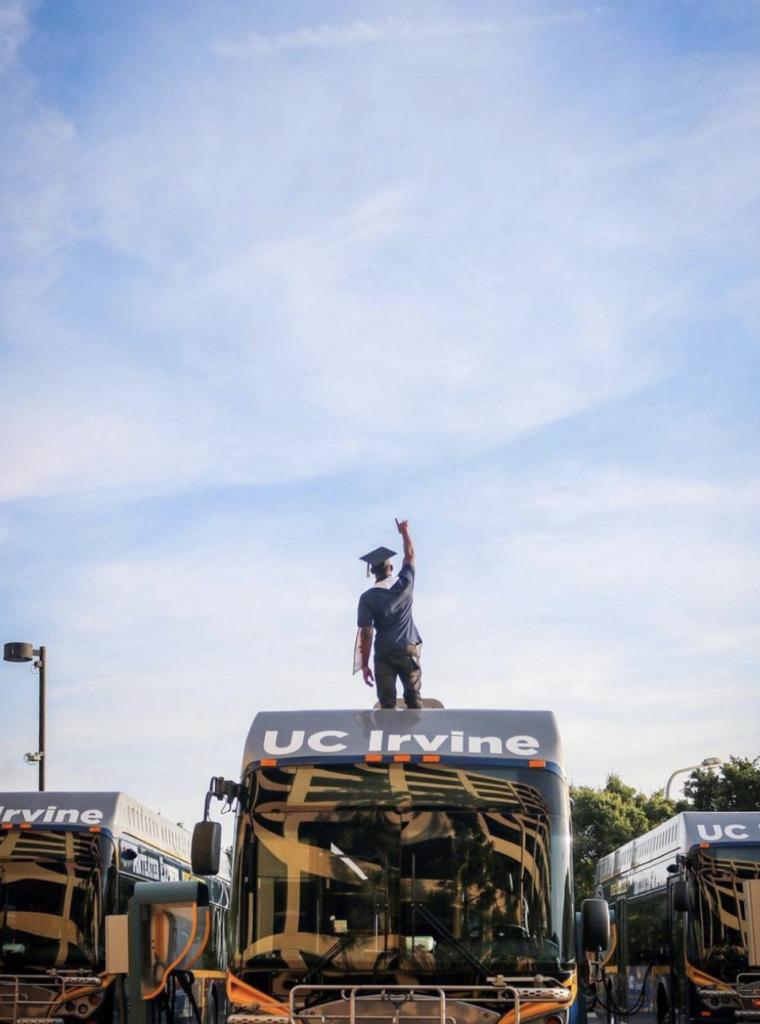
The 7:1 student-to-faculty ratio at the University of California Irvine speaks for itself. With this small classroom number, students can get one-on-one learning experiences with their professors to succeed. Their Criminology, Law and Society program stands out amongst the rest, as it remains the only criminology department within the nine schools in the University of California system. The department offers special expertise on specific topics for students to explore such as inequalities within the legal system, the incarceration process, immigration policies, social networks and more. Students also can get a lot of opportunities to get involved with multiple research programs such as consequences of criminal behavior and methods of social control.
With unique course options like Juvenile Delinquency and Theories of Punishment, students can dive deeper into learning more about different aspects of criminology. Professors come from a wide range of prior experiences that shape their knowledge. One of the Assistant Professors, Hillary L. Berk, became the first to map out the once unknown concept of “surrogacy contracting.” In simple terms, “surrogacy contracting” means an agreement between the parents and the surrogate through the pregnancy process. Professor Elliott P. Currie has written various award-winning books based on drug abuse, social policy, delinquency and crime. Therefore, the expertise of UCI truly guides their students to dig deeper into criminology.
4. University of Cincinnati
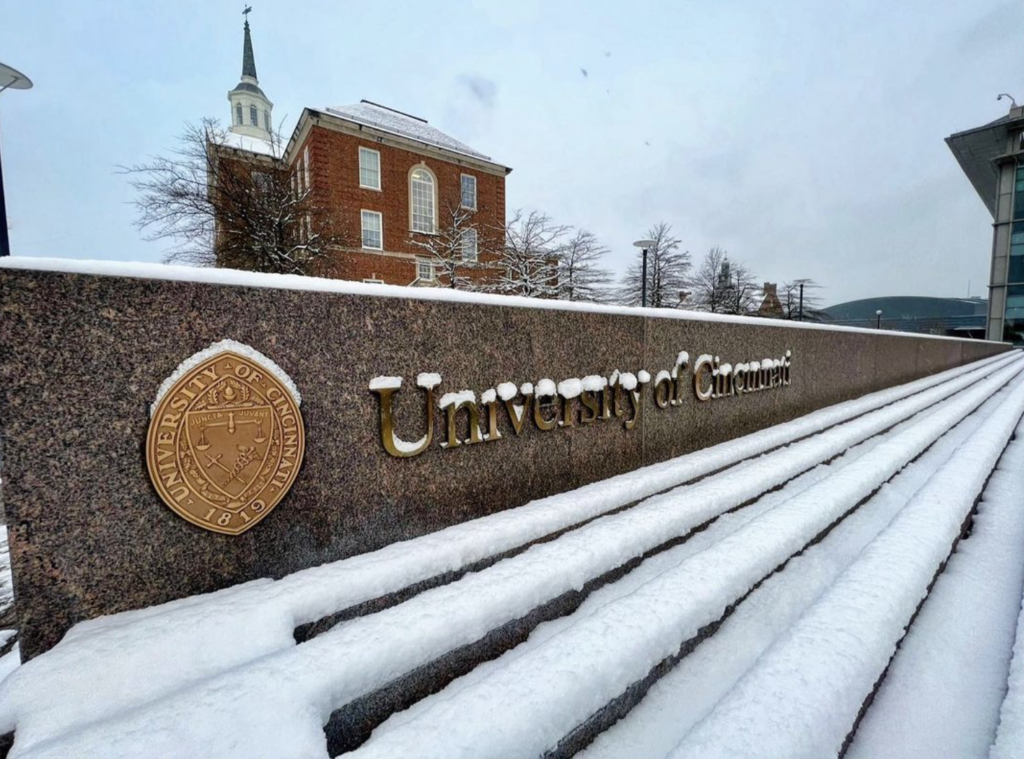
The School of Criminal Justice at the University of Cincinnati includes notable faculty members who dedicate to their craft to help their students succeed. Alumni like Ruslana Sirman now serve as a Child Protection Specialist with UNICEF Ukraine; Charmaine McGuffey, who just became the newly elected Hamilton County Sheriff. The school also offers certificate programs, which allow students to start working directly in their specific field of interest upon graduation. The programs currently include Correctional Rehabilitation, Foundations of Cybersecurity, Forensic Populations and Paralegal Studies. Within these programs, students can receive wide skill sets to each category, which make them more prepared for the real world.
Because the department hosts a free career expo that provides students with major networking opportunities, no wonder alumni like Sirman and McGuffey turned out this successful. At this event, students can connect with professionals within law enforcement, social work and more. Not only does the University of Cincinnati offer this event, but it also provides an organization tailored to help students widen their knowledge: The Criminal Justice Society. This program allows students to receive more hands-on experiences by exploring different prisons. The large range of opportunities offered on campus with the guidance of experienced professors and programs explains why the University of Cincinnati falls at number four.
5. University of Pennsylvania (UPenn)

University of Pennsylvania’s Department of Criminology delivers a wide range of courses and research opportunities for students to fully engage in. With notable professors like Anthony A. Braga, this school makes the top five on our list. Barga once stood as the principal investigator on specific projects that totaled more than $22 million in external funding. He also received numerous recognitions including the 2004 Civic Leadership Award.
Professors like Barga may teach unique courses for students to choose from including Forensic Analysis, Criminal Justice Data Analytics, Neighborhood Dynamics of Crime and American Death Penalty in Theory and Practice. Students can also involve themselves with the Crime and Justice Policy Lab. This program works directly with organizations to find solutions that prevent crime and better the justice system. Additionally, UPenn offers various courses for students that aim to specific areas, such as statistics for social sciences and quantitative methods for public policy. With these unique areas of study within the major, students can work directly with different aspects of criminology.
6. University at Albany SUNY

The School of Criminal Justice at the University at Albany SUNY offers prestigious research opportunities and phenomenal academic teachings. Specifically, the college is best known for its state-of-the-art Hindelang Criminal Justice Research Center. This organization allows students to get more involved with various projects regarding criminal justice. In fact, the center hired over 100 research assistants over the past 30 years.
Research projects, not the only thing students can participate in, but the University of Albany also provides distinctive courses to help students succeed. Some of these classes include the Theories of Crime and the Psychological Factors of Crime. Students also need to take at least one statistics course to help broaden their knowledge such as the statistical methods in psychology. Alongside the statistics requirement, students also need to take one research methods course. Without delving into research and learning about all the statistics behind it, students can’t understand the significance of criminology. This wide range of classes can help students to fully investigate the different sides of criminal justice as well as ensure their success upon receiving their degree.
7. Stonehill College
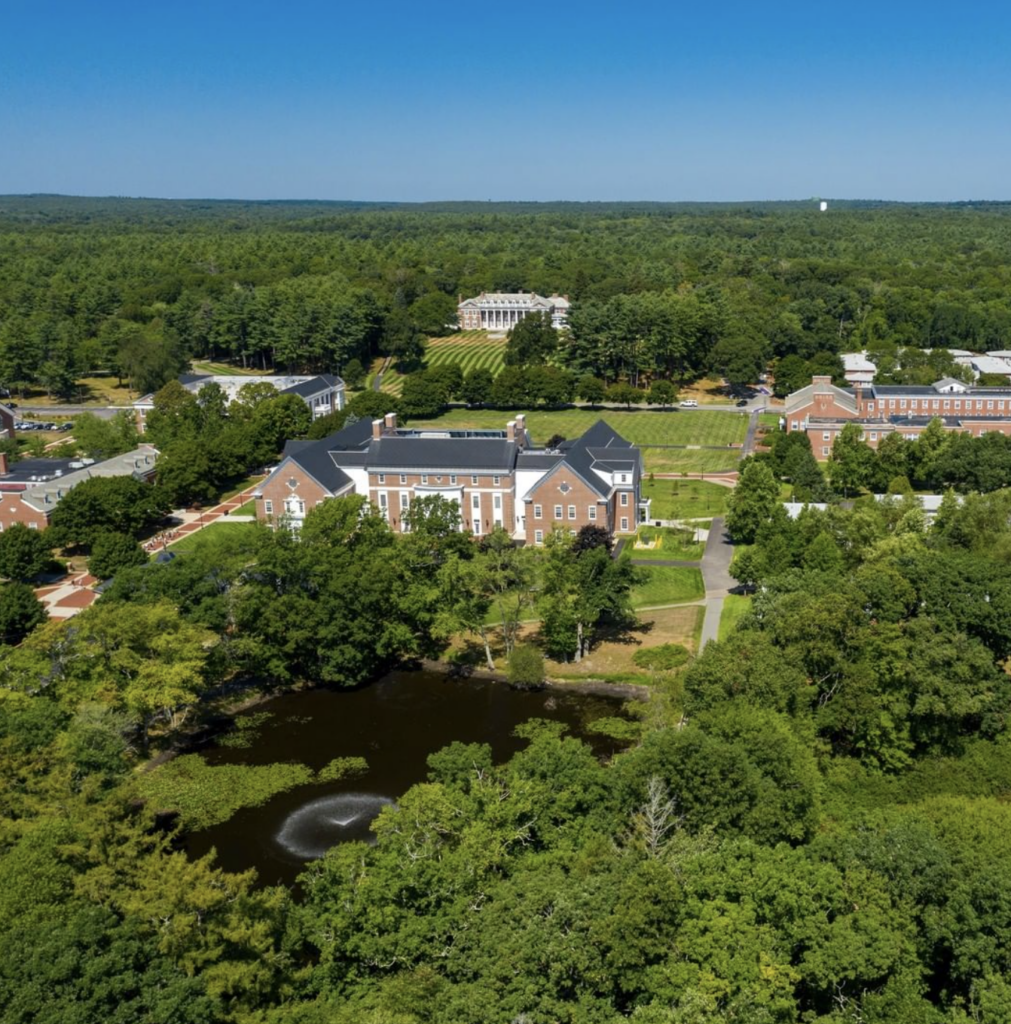
The internship program within the Sociology & Criminology Department at Stonehill College turned into a huge reason why this small school in Easton, Massachusetts makes our list. Students at Stonehill must complete an internship within their field. Some students chose to work at renowned institutions such as the Women’s Place Crisis Center, Horizons for Homeless Children, Coalition for Social Justice and more. Alongside these notable internship opportunities, Stonehill also offers community-based learning. Simply put, this allows students to experience hands-on learning through community members within their field by doing research, volunteering or mentoring.
“This September, I will begin my internship with Homeland Security Investigations, a subdivision of Immigration and Customs Enforcement (ICE). I will be working alongside a team of Special Agents and Analysts reporting directly to a Supervisory Special Agent in a variety of investigative disciplines, ranging from weapons smuggling to document and benefit fraud,” Stonehill College senior Colton Varholak said. “Stonehill’s criminology program prepared me for this internship by giving me the tools I needed to obtain this position. Our program focuses a lot on networking and building connections, specifically with Stonehill alumni, which are critical skills needed to compete for such competitive opportunities.”
The criminology program at Stonehill also provides a lot of organizations for students to participate in. For instance, the Edwin H. Sutherland Honor Society as well as an organization called Lambda Epsilon Sigma. Although the Honor Society only opens to juniors and seniors, it groups together to establish a platform for students who have an interest in expanding their education on matters like crime and delinquency. On the other hand, Lambda Epsilon Sigma allows all interested students to join, where they will learn more about how to communicate thoughts effectively with other people. Although students must meet certain criteria to join these groups, both organizations offer numerous opportunities for students to grow within their field. Moreover, Stonehill provides unique courses to help students to learn well in the classroom and jumpstart these students’ careers through ethics, values and diversity in criminal justice as well as The Jury System.
8. Florida State University (FSU)
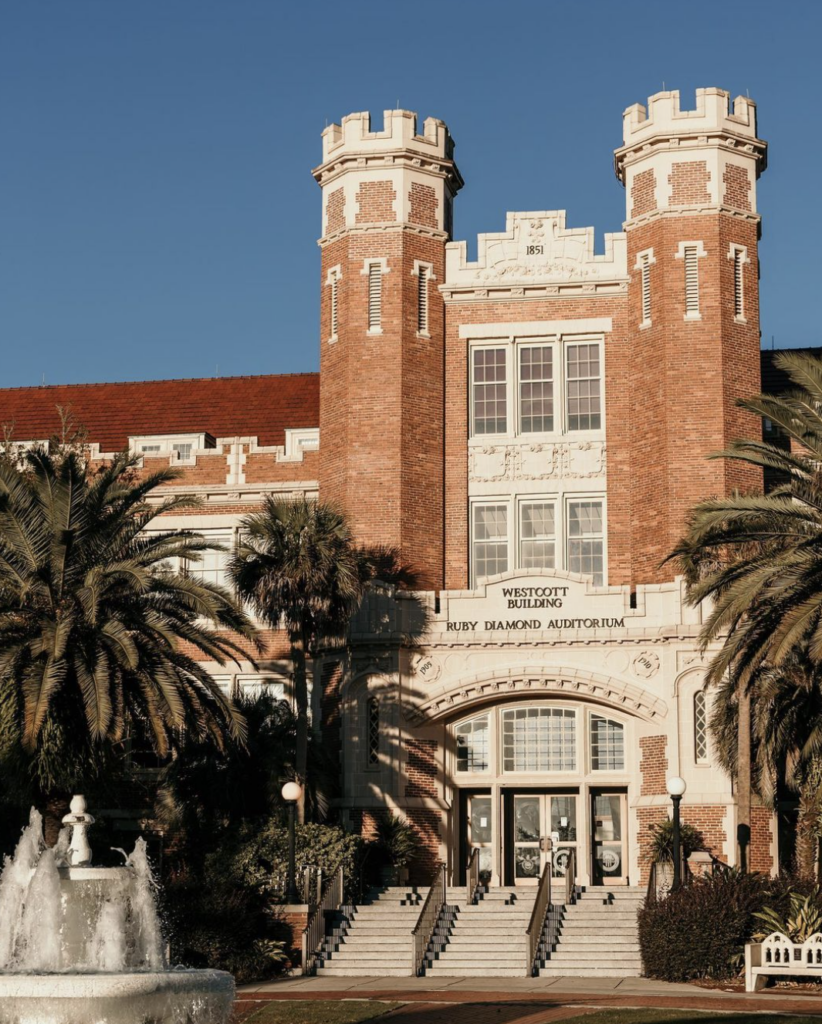
The Center for Criminology and Public Policy Research within the College of Criminology and Criminal Justice at Florida State University stands out amongst the rest. Essentially, this center allows students to explore evidence-based research at all different levels to enhance social justice. Several notable institutions open for students to participate in include the Hate Crime Research & Policy Institute as well as the International and Comparative Criminology Research and Policy Institute. The college bases its success on research, education and service, which drives by opportunities inside and outside of the classroom.
Not only do students participate in research, but professors do it as well. This, in turn, increases the knowledge of professors when it comes to teaching methods to their students. Some unique courses such as Victimology, Religion and Crime and White-Collar Crime, will help students not only narrow down their specific field of interest, but also help them to grow as more well-rounded individuals within their major studies. The College of Criminology and Criminal Justice first opened its doors to students in 1918, meaning the department has over a century’s worth of expertise.
9. University of Delaware (UD)

The Department of Sociology and Criminal Justice at the University of Delaware produces successful working alumni. From Federal Probation Officers who work in the Attorney General’s Office to Intelligence Analyst, clearly, UD hits the nail on the head. Students can jumpstart their careers on the right foot with two different research centers: The Center for Drug and Health Studies and the Disaster Research Center. The Center for Drug and Health Studies dives into research regarding avenues like substance disorders and behavioral health. On the other hand, the Disaster Research Center guides its work toward complex social issues.
Not only do faculty within the department guide these research centers, but they also stand well-rounded within their experiences, which also play a huge role in helping students grow. Some of them serve as founders for the previously mentioned research centers, while others kickstart their own research projects. Many unique courses that these professors teach include Problems of Criminal Judiciary and Problems of Corrections. In order to develop into a well-rounded individual within the field, UD students must take classes in political science, psychology, sociology and history. After taking these courses, UD remains confident that their students will have a wide skill set.
10. University of Missouri at St. Louis
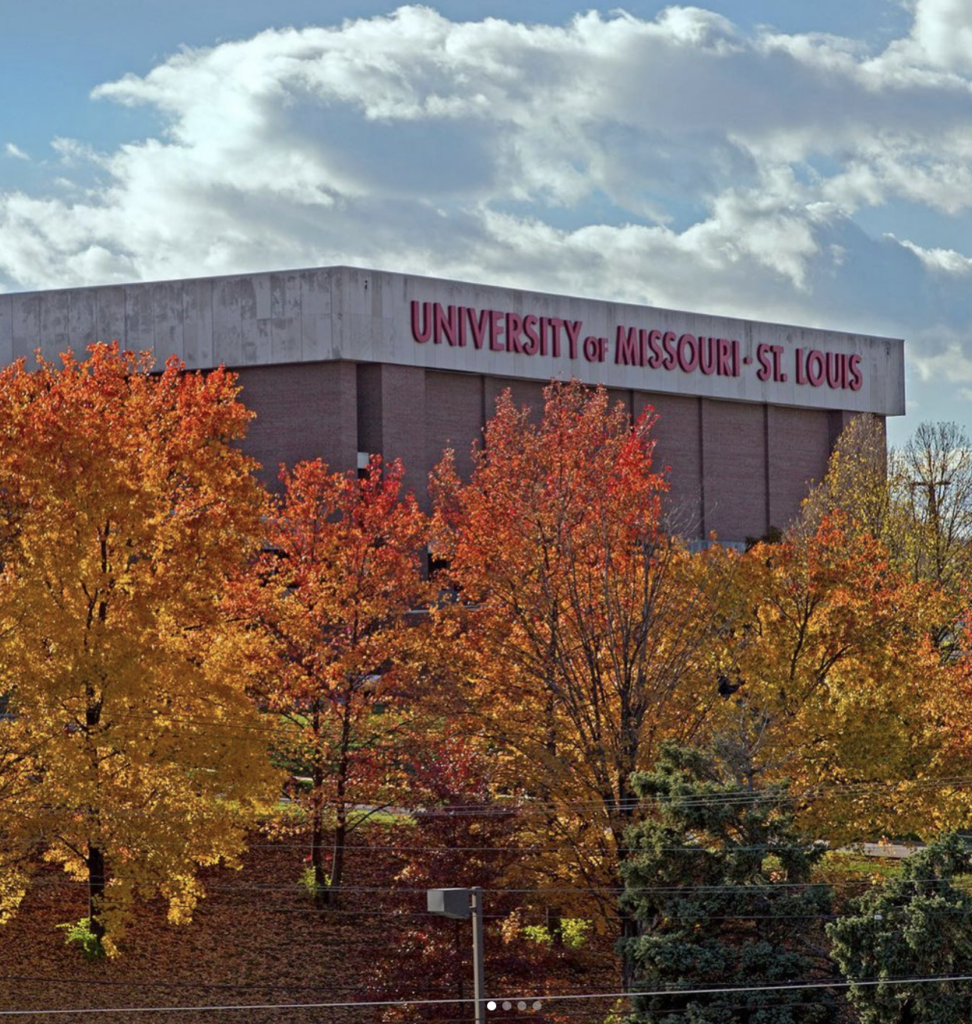
The Criminology and Criminal Justice School at the University of Missouri St. Louis offer extensive research opportunities and internships at local, state and federal level to help students succeed. These internships allow students to work hands-on with investigators and professors. Some of the work includes racial injustices embedded with drug and crime abuse, as well as evaluating the judicial system. Additionally, the campus implements various professional organizations to give students a wide range of options that allow them to become more knowledgeable within their field.
Clearly, the University of Missouri at St. Louis prepares their students well before and after graduation, because both students and alumni made headlines by recognizing the work they do. This shows just how successful the college is within this department. Some alumni even made groundbreaking impacts at several police departments around the country as well as the National Park Service. No doubt that by receiving a criminology degree at the University of Missouri at St. Louis, students will land a triumphant career.



















